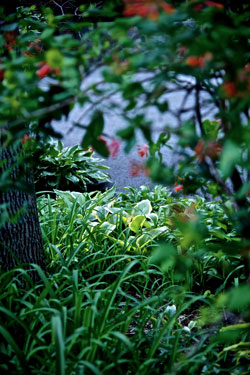How to Protect Your Mental Health During the Coronavirus Outbreak
In my last post, I talked about strategies for managing anxiety during these harrowing times. I have added some new tips for boosting psychological immunity and staying on track with sound mental health practices while sheltering in place in a post I wrote for the National Alliance on Mental Illness (NAMI).
Tags: coronavirus anxiety
Posted in Articles, COVID-19 Mental Health, Depression, Health Anxiety, mindfulness, Obsessive Compulsive Disorder, Self-help, Techniques |
How to Keep Your Anxiety from Spreading Like a Virus in the Face of COVID-19 [Updated]
The new Coronavirus outbreak has infiltrated our public consciousness, and it is exhausting. When the media are constantly bombarding us with updates about fatality counts and quarantines, even the most unflappable are finding it hard to stay calm. Everyone seems to be running to the nearest supermarket to stockpile disinfectant wipes, bottled water, and canned goods. So how are people with health anxiety and OCD—who are already prone to excessive worry about uncertainty, contamination, and illness— supposed to cope?
In treating anxiety, I use the evidence-based approach called Exposure/Response Prevention to help people tackle their fears and limit the compulsive behaviors, such as excessive washing, designed to make them feel less anxious about risk. But some of the practices my colleagues and I would typically recommend for someone with contamination worries, such as limiting hand-washing and avoiding the use of hand-sanitizer, fly in the face of current public health recommendations. Even so, if you keep in mind the rationale for exposure-based approaches to anxiety, which is to learn to tolerate discomfort and uncertainty, you can still come up with a personal plan allowing you to follow reasonable disease- prevention guidelines without letting your anxiety skyrocket and control your behavior.
- Take reasonable precautions.
Use only one source, such as the CDC, to create your “response-prevention plan,” or rules for practicing sensible health habits without giving into compulsions. Follow the plan you’ve made in advance so you don’t let anxiety dictate your behavior in the moment. - Less is better than more if you have OCD. For example, the CDC says “clean frequently…wash your hands often…for at least 20 seconds.” The words “frequently,” “often,” and, “at least” are ambiguous—and potential landmines for the OCD brain. Accepting uncertainty is a vital component of OCD treatment but, in this case, vague guidelines are not helpful. Decide you’ll wash your hands for 20 seconds, not 40 or 60 “just to be safe.” Don’t let anxiety make you doubt, second- guess, or modify the plan.
- Limit your consumption of the news and social media. You will be informed enough without knowing every detail about the outbreak. Decide which news outlets you will follow, how long you will spend reading them, and put yourself on a predetermined schedule for checking your sources. Don’t go down a rabbit hole seeking information. Unless you are on the frontline of the public health effort, you don’t need to know as much as the experts. And don’t look to random internet sources for preventative measures. According to a recent Washington Post column, Craig’s List is selling DIY Coronavirus vaccines. Which don’t exist.yet.
- *Don’t modify your activities just because you’re anxious. Unless your employer has implemented a mandatory telework policy, continue to go to work. Take your kids to the playground. Eat out if you normally enjoy going to restaurants. Spend time with friends. Shop at the supermarket. Get haircuts and manicures (sadly, many of my Chinese manicurist’s clients have been cancelling appointments out of misplaced fear). Of course, you should follow your response-prevention plan for washing when you are in public places where you are coming into contact with a lot of people. *See update below.
- Practice mindfulness and acceptance techniques. Whether you use meditation, yoga, prayer, or exercise, focusing your attention on the present moment, rather than ruminating about a catastrophic, uncertain future, can help you cope.
This is a challenging time for all of us. But we don’t need to make it worse than it already is by fueling our anxiety. If we practice responding to the uncertainty with reason and thoughtfulness rather than reacting out of panic, everyone will benefit.
Update: When I wrote this post only ten days ago, the coronavirus situation was very different from how it is now. The current national emergency mandates strict social-distancing practices, which make my advice to carry on normal activities no longer medically sound. or feasible.
I will be writing another post in the coming days with tips for staying sane while stuck in the house.
Tags: coronavirus anxiety, OCD
Posted in Anxiety, COVID-19 Mental Health, General, Health Anxiety, Mental Health and the Media, Obsessive Compulsive Disorder |


